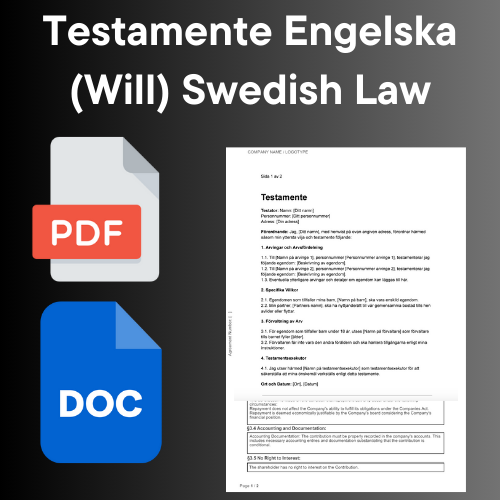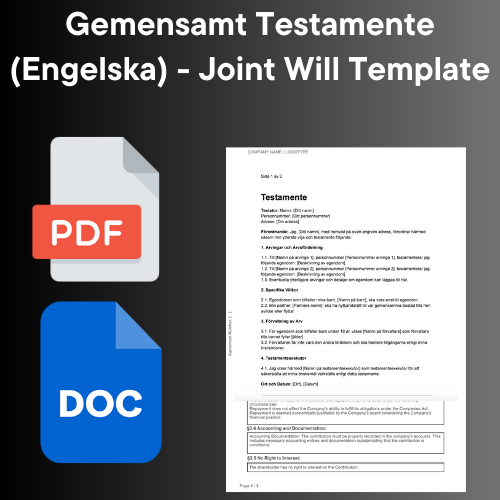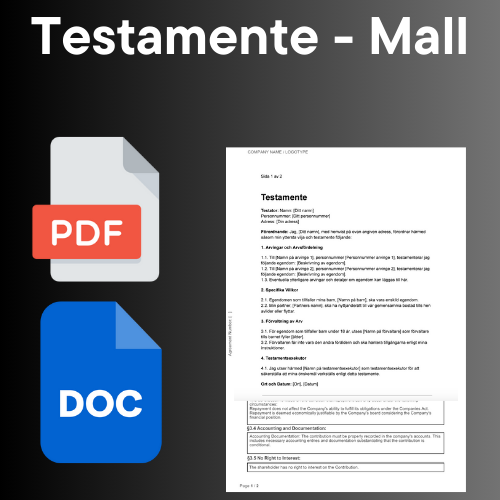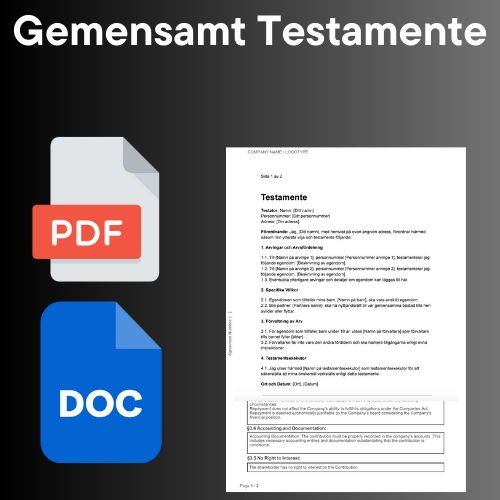Can a will become too old? FAQ
Share
Table of contents
What is a Will?
A will is a legal document that sets out how a person's assets will be distributed after their death. By writing a will, you can decide who will inherit your assets, how much they will inherit, and under what conditions. A will may also include instructions for the custody of minor children, charitable donations, and other important decisions.
Can a Will Be Too Old?
One of the most common misconceptions about wills is that they can become too old or invalid after a certain period of time. In practice, a will cannot be invalidated simply because of its age. As long as the will meets all the legal requirements when it was written, and it has not been revoked or replaced by a new will, it remains valid no matter how many years have passed.
When Should a Will be Updated?
Although a will does not become invalid over time, there are several reasons why you may need to update it:
- Life changes : If your life situation has changed, for example through marriage, divorce, the birth of a child or grandchild, or a death in the family, it may be necessary to revise the will.
- Financial Changes : If your financial situation has changed significantly, for example by receiving a large inheritance, buying real estate, or starting a business, it may be wise to adjust the will.
- Legal Changes : Changes in the law can affect how wills are interpreted. It is important to keep up to date with changes in inheritance laws and adapt your will accordingly.
- Personal Preferences : Your personal preferences may change over time. If you have changed your mind about how you want your assets to be distributed, this should be reflected in an updated Will.
How do you update a will?
Updating a will can be done in several ways:
- Addendum : An addendum is an addition to your existing will. It can be used to make minor changes, such as adding a new beneficiary or adjusting a benefit. Supplements must be signed and witnessed in the same manner as an original will to be valid.
- Write a New Will : If you need to make extensive changes, it may be easier to write a completely new will. When a new will is created, the previous will is automatically revoked, provided the new will is properly issued.
- Destroy the Old Testament : If you have written a new will, be sure to destroy all copies of the old one to avoid confusion and disputes in the future.
Common Mistakes when updating Wills
When updating your will it is important to avoid some common mistakes:
- Forgetting to Update All Copies : If you've given copies of your will to family members or your lawyer, make sure they get the latest version.
- Lack of Clarity : Make sure all changes are clearly described to avoid disputes about what you meant by the updates.
- Not Having the Amendments Witnessed : Amendments must be witnessed in the same way as the original will. Otherwise, they may be considered invalid.
Duration and Validity of the Will
A will remains valid as long as it is not revoked or amended. However, there may be factors that affect its validity:
- Mental Capacity : The person writing the will must be sane when the document is created. If there is doubt about this, the will can be contested.
- Involuntary : The will must be the result of a free will. If it can be proven that someone was forced to write or change their will under duress, it can be declared invalid.
- Witnessing : The will must be witnessed by two people who are not beneficiaries of the inheritance. If this has not been done correctly, the will may become invalid.
How Long Do You Have to Execute a Will?
After a person's death, there is no specific time limit for when a will must be executed. However, it is wise to do so as soon as possible to avoid legal complications or tax issues. Probate, which is an important part of executing a will, must usually be done within three months of death.
Conclusion
Although a Will does not become obsolete or automatically invalid over time, it is important to regularly review and update it to ensure that it still reflects your wishes and situation. By keeping your will up to date, you avoid unnecessary disputes and ensure that your loved ones receive the assets you want them to have. If you are unsure how to go about updating your will, you can use our document templates to create a new will or addendum that is legally binding and tailored to your specific situation.




